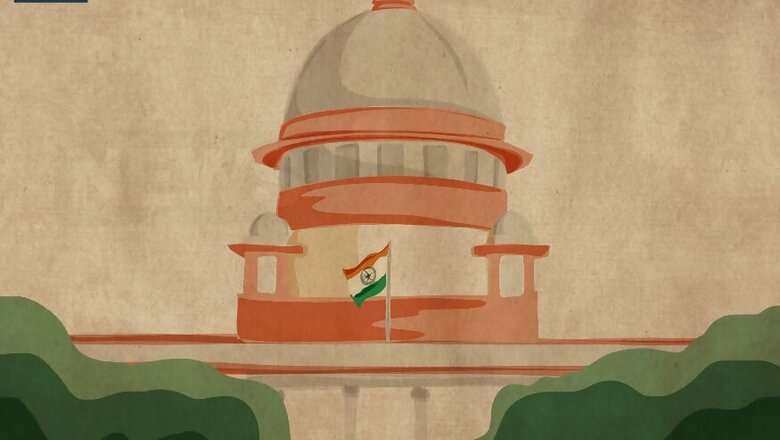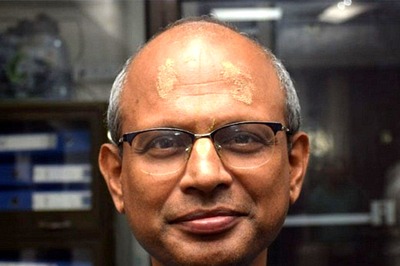
views
New Delhi: Members of Scheduled Castes and Scheduled Tribes are still struggling for equality and civil rights, and are left to die in sewer chambers which are like "death traps", the Supreme Court said on Tuesday.
The apex court, which observed that the SC/ST members are still discriminated against in matter of civil rights, said they have been suffering ignominy, abuse and have been outcast socially for centuries.
"They do labour, bonded or forced, in agricultural fields, which is not abrogated in spite of efforts. In certain areas, women are not treated with dignity and honour and are sexually abused in various forms. We see sewer workers dying due to poisonous gases in chambers. They are like death traps," a bench headed by Justice Arun Mishra said.
"We have not been able to provide masks and oxygen cylinders for entering sewer chambers. We cannot leave them to die like this and avoid tortuous liability concerned with officials/machinery, and they are still discriminated within the society in the matter of enjoying their civil rights and cannot live with human dignity," the bench, also comprising justices MR Shah and BR Gavai, said.
The observations by the bench came in its 51-page verdict in which it recalled apex court's direction in its March 20, 2018 judgement which had virtually diluted provisions of arrest under the SC/ST Act.
Referring to the prevailing conditions, the bench said, "We are compelled to observe that SCs/STs are still making the struggle for equality and for exercising civil rights in various areas of the country."
It said that in spite of reservation, the "fruits of development" have not reached to the members of SC/ST communities and by and large they have remained unequal and vulnerable sections of the society.
"The efforts for their upliftment should have been percolated down to eradicate their sufferings," the bench said. Referring to Article 21 of the Constitution, the top court said that the Right to Life includes the right to live with dignity.
"Basic human dignity implies that all the persons are treated as equal human in all respects and not treated as an untouchable, downtrodden, and object for exploitation," it said, adding, "It also implies that they are not meant to be born for serving the elite class based upon the caste."
It said that caste discrimination is deep-rooted in the society and though consistent efforts have been made to remove it, the country still has to achieve the real goal. "No doubt we have succeeded partially due to individual and collective efforts," it said.
The bench noted that historically, disadvantageous groups must be given special protection and help so that they can be uplifted from poverty and low social status.
The top court had on September 18 criticised the verdict delivered by its two-judge bench on March 20 last year and had observed whether a judgment could be passed against the spirit of the Constitution.
Indicating that it would pass certain directions to "bring in equality" as per provisions of the law, the top court had said people belonging to scheduled castes and scheduled tribes are subjected to "discrimination" and "untouchability" even after over 70 years of Independence.
The court also said that members of the SC/ST community cannot be treated as liars or crooks and it cannot be presumed that they would lodge false FIRs to secure monetary benefits or to take revenge.
The apex court, which termed as "alarming" the data of National Crime Records Bureau that over 47,000 cases were lodged in 2016 under the Scheduled Castes and the Scheduled Tribes (Prevention of Atrocities) Act, observed it cannot be said that it is due to outcome of misuse of provisions of law.
"It would be against the basic human dignity to treat all of them (SC/ST members) as a liar or as a crook person and cannot look at every complaint by such complainant with a doubt," said the bench.
The bench observed this in its 51-page verdict by which it recalled the apex court's direction in its last year's judgement which had virtually diluted provisions of arrest under the SC/ST Act.
Dealing with the issue related to allegations of lodging of false FIRs by members of SC/ST communities under the Act, the top court stated, "it cannot be said that the caste of a person is the cause".
"It is due to the human failing and not due to the caste factor. Caste is not attributable to such an act. On the other hand, members of the Scheduled Castes and Scheduled Tribes due to backwardness hardly muster the courage to lodge even a first information report, much less, a false one," it said.
The bench said in case it is found that a case lodged under the SC/ST Act is false or unsubstantiated, it might be due to faulty investigation or for other various reasons including human failings irrespective of caste factor.
"There may be certain cases which may be false that can be a ground for interference by the Court, but the law cannot be changed due to such misuse," it said.
"As a matter of fact, members of the Scheduled Castes and Scheduled Tribes have suffered for long, hence, if we cannot provide them protective discrimination beneficial to them, we cannot place them at all at a disadvantageous position that may be causing injury to them by widening inequality and against the very spirit of our Constitution," it said.
The bench said that members of SC/ST communities hardly "muster the courage to speak against upper caste" and that is why provisions have been made by way of amendment for protection of witnesses and rehabilitation of victims.
The apex court's March 20, 2018, verdict had led to a massive outcry and protests by different SC/ST organisations across India after which Parliament passed the Scheduled Castes and the Scheduled Tribes (Prevention of Atrocities) Amendment Act, 2018, to neutralise effects of the judgment.



















Comments
0 comment